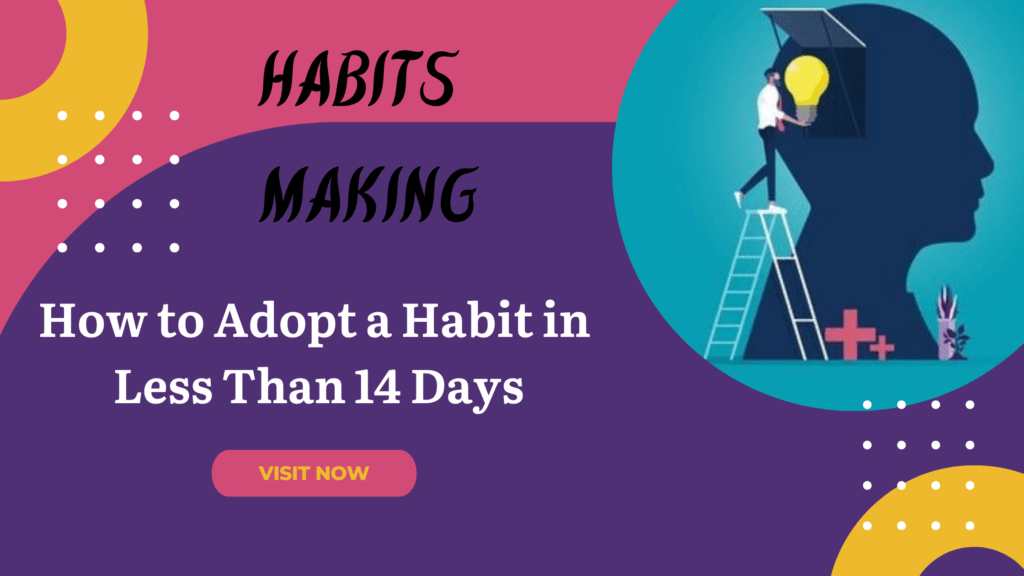In today’s fast world, many struggle with procrastination. It’s about delaying tasks, starting projects late, or feeling overwhelmed. But, the good news is we can beat it and reach our full potential.
This guide will show you how to overcome procrastination, improve your time management, and build self-discipline and habits. By knowing why we procrastinate and learning to prioritize, you’ll have the skills to tackle delays and reach your goals faster.
Key Takeaways
- Understand the psychological factors contributing to procrastination
- Develop effective time management strategies to boost productivity
- Cultivate self-discipline and create habits to overcome procrastination
- Prioritize tasks and create a conducive environment to minimize distractions
- Embrace accountability and celebrate small wins to stay motivated
Understand the Root Causes of Procrastination
Breaking the cycle of procrastination starts with understanding its roots. It’s a mix of thoughts and feelings that hold us back. By looking into these causes, we can find out why we delay tasks.
Exploring Procrastination Psychology
Procrastination often comes from fear of failure or lack of motivation. We might avoid tasks we find hard or unpleasant. Instead, we choose things that give us quick joy.
This choice is often driven by a need for perfection, low self-esteem, or preferring short-term fun over long-term goals.
Identifying Your Personal Triggers
To beat procrastination, know what triggers it for you. Ask yourself, “What tasks do I usually delay?” and “What feelings come up when I face them?” Thinking about these can reveal why you procrastinate.
Knowing your triggers helps you create plans to tackle them. This way, you can overcome procrastination more effectively.
| Cognitive Factors | Emotional Factors |
|---|---|
|
|
By diving into procrastination psychology and finding your triggers, you’re ready to tackle it. Next, we’ll look at practical ways to manage your time and reach your goals.
Overcoming Procrastination: The Power of Small Steps
Dealing with procrastination can seem tough, but small steps can help. Breaking big tasks into smaller ones helps us move forward. This way, we build a habit of getting things done, even with big projects or goals.
One great way to fight procrastination is to start with tiny actions. Instead of feeling overwhelmed, we can just do one small thing. This builds our confidence and gives us a sense of achievement, pushing us to keep going.
“The journey of a thousand miles begins with a single step.” – Lao Tzu
Small steps are key in beating procrastination. By splitting big goals into smaller tasks, we feel like we’re making progress. This keeps us motivated and helps us form good habits.
- Identify a task or project that you’ve been putting off.
- Break it down into smaller, more manageable steps.
- Focus on completing the first step, no matter how small.
- Once you’ve completed that first step, celebrate your accomplishment and move on to the next.
- Repeat this process, building momentum and establishing a habit of productivity.
The secret to beating procrastination is taking action, even if it’s just a little bit. By using small steps, we build a mindset of progress. This leads to lasting changes in our productivity and habit formation.
Prioritize and Plan Your Tasks
Managing your time well is key to beating procrastination. We’ll look at top ways to sort out what’s most important. This helps you use your time wisely and stay on track with your tasks.
Prioritization Methods for Better Time Management
The Eisenhower Matrix is a great tool. It sorts tasks into four groups: urgent and important, urgent but not important, important but not urgent, and not urgent or important. This helps you focus on what really matters. The 80/20 rule is another good method. It shows that 80% of results come from 20% of efforts.
Task planning is also vital. Making a detailed to-do list and setting deadlines helps you stay organized. It’s not just about checking off tasks. It’s about doing the right things at the right time.
“The key is not to prioritize what’s on your schedule, but to schedule your priorities.”
– Stephen R. Covey
Using these methods and strategies daily will help you beat procrastination. You’ll be on your way to reaching your goals.
Cultivate Self-Discipline and Habit Formation
Beating procrastination needs a mix of strategies. A key part is building self-discipline and good habits. These skills help you succeed in the long run and beat procrastination.
Self-discipline helps you control your thoughts, feelings, and actions to reach your goals. It pushes you forward, even when things seem tough. Start by setting clear goals and breaking them into smaller steps. Celebrate your wins and don’t get too down on yourself when you slip up.
Habit formation means making consistent actions automatic. By following a routine, you can make hard tasks easy habits. Try different methods, like the Pomodoro Technique or the 2-Minute Rule, to see what works for you.
- Find out what makes you procrastinate and figure out how to deal with it.
- Use accountability, like telling a friend your goals or using apps, to stay focused.
- Recognize and celebrate your small victories to keep yourself motivated.
Building self-discipline and good habits takes time and effort. But with steady work and patience, you can beat procrastination. Start your journey and believe in your ability to change for the better.
“The secret of getting ahead is getting started. The secret of getting started is breaking your complex overwhelming tasks into small manageable tasks, and then starting on the first one.”
– Mark Twain
| Habit Formation Strategies | Benefits |
|---|---|
| Pomodoro Technique | Boosts focus and productivity by mixing work with short breaks |
| 2-Minute Rule | Pushes you to act right away on tasks that take 2 minutes or less |
| Habit Stacking | Makes it easier to add new habits to your routine by linking them to existing ones |
Remove Distractions and Create a Conducive Environment
Overcoming procrastination starts with a productive environment. By cutting out distractions and setting up a good workspace, we can stay focused and reach our goals.
Strategies for Minimizing Distractions
Distractions are a big hurdle to productivity. Here are some ways to fight them:
- Limit digital notifications: Switch off alerts from social media, email, and apps to resist the urge to check your phone all the time.
- Designate dedicated work zones: Pick a spot in your home or office for work only. Make it free from clutter and distractions.
- Implement focus-boosting techniques: Try the Pomodoro method for focused work and breaks. Or use noise-cancelling headphones for a better work space.
Using these tips, you can remove distractions and create a conducive environment. This will help you manage your time better and fight procrastination.
Embrace Accountability and Support Systems
Overcoming procrastination gets easier with a strong support system and accountability. We’ll look at why accountability matters and how accountability partners help you beat procrastination.
The Role of Accountability Partners
Accountability partners can change the game in fighting procrastination. They are people you trust who keep you motivated. By sharing your goals and deadlines, you feel more responsible and committed.
Here’s how accountability partners can help you:
- Regular check-ins to talk about your progress and challenges
- Offering encouragement and new ideas when you’re stuck
- Making sure you meet your deadlines and keep your promises
- Celebrating your wins and small achievements
Choosing someone you trust and who gives honest feedback is key. With accountability and support, you can beat procrastination and reach your goals.
| Benefits of Accountability Partners | Strategies for Effective Accountability |
|---|---|
|
|
By embracing accountability and support, you’ll be ready to overcome procrastination and achieve your goals.
Celebrate Small Wins and Stay Motivated
Overcoming procrastination is a journey. It’s key to celebrate your progress along the way. Celebrating small wins helps keep you motivated and moving forward.
One great way to stay motivated is to acknowledge your achievements. It doesn’t matter how small they are. Completing a task or making progress on a project is worth celebrating. This positive feedback can give you the push you need to keep going.
Visualization is also a powerful tool. Imagine yourself finishing your tasks and feeling accomplished. This mental picture can keep you focused and driven. It reminds you of the good things that come from overcoming procrastination.
It’s also important to practice positive self-talk. Fight off negative thoughts with encouraging words. Remind yourself of your strengths and how far you’ve come. This helps build confidence and keeps you moving forward.
Lastly, reward yourself for your hard work. This could be as simple as enjoying a favorite snack or taking a break. Linking your progress to positive experiences helps solidify the habit of overcoming procrastination.
The journey to beat procrastination isn’t easy. But, by embracing the ups and downs and celebrating small wins, you can stay motivated. With determination and a positive attitude, you can break the cycle of procrastination and reach your goals.
Time Management Strategies for Overcoming Procrastination
Effective time management is a strong weapon against procrastination. By mastering time management techniques, you can prioritize tasks better, avoid distractions, and use your time wisely. This helps you beat procrastination.
Effective Time Management Techniques
The Pomodoro Technique is a well-known strategy. It involves working in 25-minute focused sessions, followed by short breaks. This boosts productivity and focus. The Two-Minute Rule is also effective. It suggests doing tasks that take less than two minutes right away, instead of putting them off.
The ABCDE Method is another useful strategy. It sorts tasks by importance and urgency. This lets you tackle the most critical tasks first, keeping you from getting sidetracked by less important ones.
| Time Management Technique | Description |
|---|---|
| Pomodoro Technique | Work in focused 25-minute intervals, followed by short breaks, to improve productivity and concentration. |
| Two-Minute Rule | Tackle tasks that can be completed in two minutes or less immediately, rather than adding them to a to-do list. |
| ABCDE Method | Categorize tasks based on their importance and urgency, allowing you to focus on the most critical items first. |
By using these time management strategies daily, you can fight procrastination and boost productivity. Remember, building new habits takes time and effort. Stay consistent and patient.
Conclusion
In this guide, we’ve covered many ways to beat procrastination and start working towards your goals. You now know how to tackle the reasons behind procrastination, build self-discipline, and manage your time well. These steps will help you break free from procrastination and reach your highest potential.
Remember, beating procrastination is a journey. By using the tips from this article, you can boost your productivity and reach your goals. The main points are to focus on what’s important, avoid distractions, and create systems to keep you accountable. These steps lead to lasting changes in your behavior.
As you work to overcome procrastination, keep looking for new resources and support. Try different methods to find what works best for you. By doing this, you’ll be on your way to a more productive and fulfilling life.


